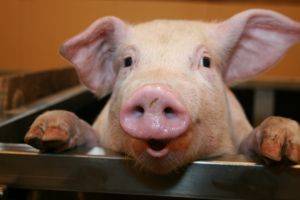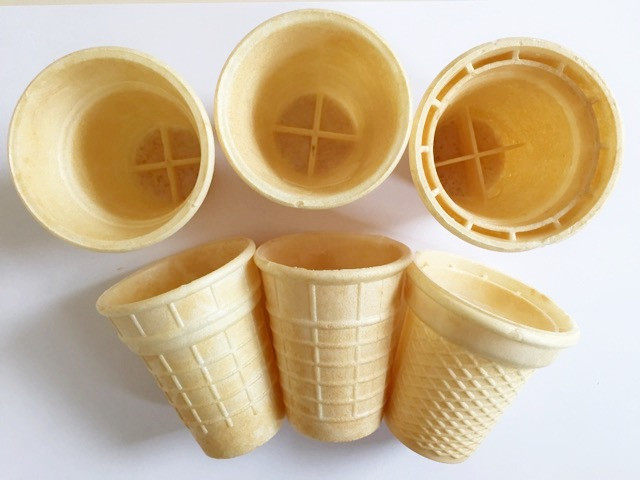How the veterinary control system was improved in Chechnya
The system of veterinary control has been improved in the Chechen Republic. Since March of this year, employees of the ROSSELKHOZNADZOR and Rospotrebnadzor and the veterinary department have been on duty at seven federal posts of the Ministry of Internal Affairs at the entrance to the republic, along with traffic police inspectors.
According to experts, this approach is the most effective in order to prevent the introduction of animal infections into the region and the importation of products dangerous to humans. Ruslan Khatuev, HEAD of the Department of Veterinary Medicine of the Government of the Chechen Republic, spoke about the first results of such work for Veterinary and Life.
Ruslan Sultanovich, when was it decided to introduce a new veterinary control scheme for the republic?
Ruslan Khatuev: On February 18 this year, a list of instructions from the Head of the Chechen Republic, Ramzan Akhmatovich Kadyrov, was approved. It was necessary to take additional measures to prevent unauthorized trade in MEAT products, to prevent the transportation of large and small cattle across the territory of the republic without appropriate veterinary support.
Thus, the need for joint duty at the posts of the Ministry of Internal Affairs for the Chechen Republic of employees of the veterinary department, the territorial department of the Rosselkhoznadzor, Rospotrebnadzor has ripened. The main goal is to monitor the quality of meat, meat products and animals that are imported into the republic. Particular attention is paid to the availability of product quality certificates, veterinary accompanying documents and compliance with the rules of transportation.
The representative of each department works within its powers: visual inspection of the animal or products, checking the availability of documents and their compliance with the requirements of the law, drawing up acts in case of violations.
What are the first results of the reinforced veterinary posts? What violations were found?
Ruslan Khatuev: The main result is the suppression of the import of animals, poultry and meat into the republic without appropriate veterinary support, that is, by doing so, we do not allow the import of sick animals, poultry and low-quality products. This measure is necessary to preserve both the HEALTH of people and the health of animals and birds that may come into contact with imported individuals.
At joint reinforced posts from March 1 to April 10, 2022, employees inspected 3,684 units of cargo, including 845 in transit through the Chechen Republic.
If there are no veterinary accompanying documents for the cargo, the car is simply turned back. So 65 cars were returned back, 83 acts of violations were drawn up, which were transferred to the Office of the Rosselkhoznadzor for the Chechen Republic for further action.
Now how do you assess the epizootic situation in the republic?
Ruslan Khatuev: The epizootic situation for especially dangerous infectious diseases, including those common to humans and animals, is currently safe in the Chechen Republic.
In 2021, 64 heads of cattle with brucellosis were identified, quarantine was introduced in 23 settlements.
In January-March 2022, brucellosis quarantine was introduced in 10 settlements.
According to experts, brucellosis and smallpox are diseases endemic to the Caucasus due to developed sheep breeding. What methods are used to curb their spread? What kind of work is carried out with the population, agricultural enterprises?
Ruslan Khatuev: Brucellosis and smallpox are typical not only for the Caucasus, so these diseases should hardly be called endemic.
The territory of the Chechen Republic is free of brucellosis, goat pox and sheep pox, as the veterinary service of the republic is working seriously with both business entities and the population.
To monitor brucellosis, veterinarians annually examine all breeding stock of sheep for the presence of the causative agent of this disease.
To prevent sheep pox, we vaccinate the entire population of the buffer zone (the territory bordering the Republic of Dagestan, which is unfavorable for sheep pox).
The Chechen Republic entered the "South" zone and received the status of freedom from FMD with vaccination. What measures are being taken to maintain this status?
Ruslan Khatuev: To maintain the well-being status, 100% vaccination of susceptible livestock against FMD is carried out annually. Also, together with the Caucasian Interregional Department of Rosselkhoznadzor, monitoring is carried out for the presence of foot and mouth disease virus circulation among susceptible animals.
What is the situation in the republic with the identification of animals: domestic and agricultural? Are owners willing to tag their animals or are they reluctant to do so?
Ruslan Khatuev: Identification of farm animals on the territory of the republic is carried out by tagging in accordance with the list of instructions of the Head of the Chechen Republic Ramzan Kadyrov (No. 01-08 of 04/03/2017).
Pets are microchipped in private clinics. Not to say that all pet owners willingly agree to label their pets. Explanatory work is being carried out with them about the need for registration and veterinary support of animals.
Is the republic provided with veterinary vaccines and medicines?
Ruslan Khatuev: Yes, the republic is provided with vaccines and drugs for veterinary use in full at the expense of the federal budget.



























































